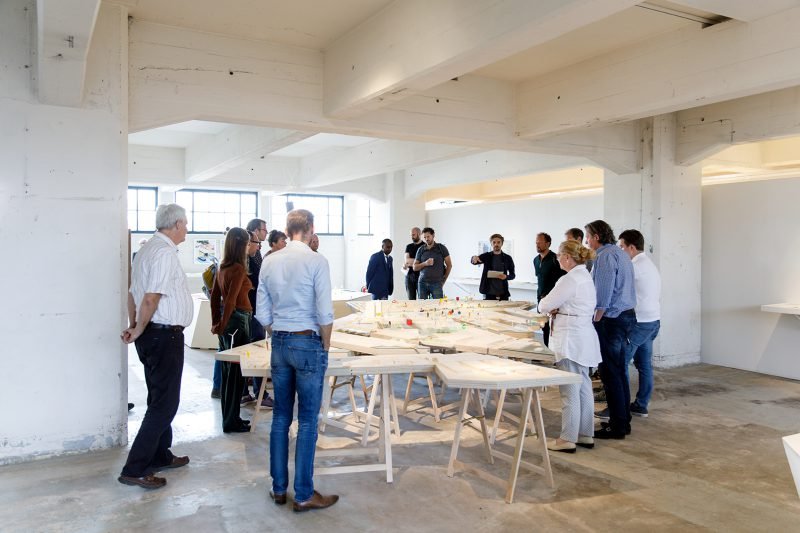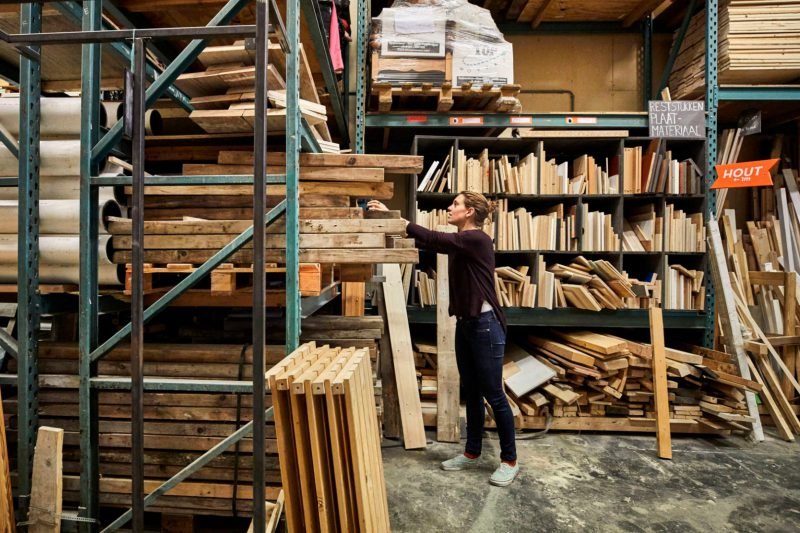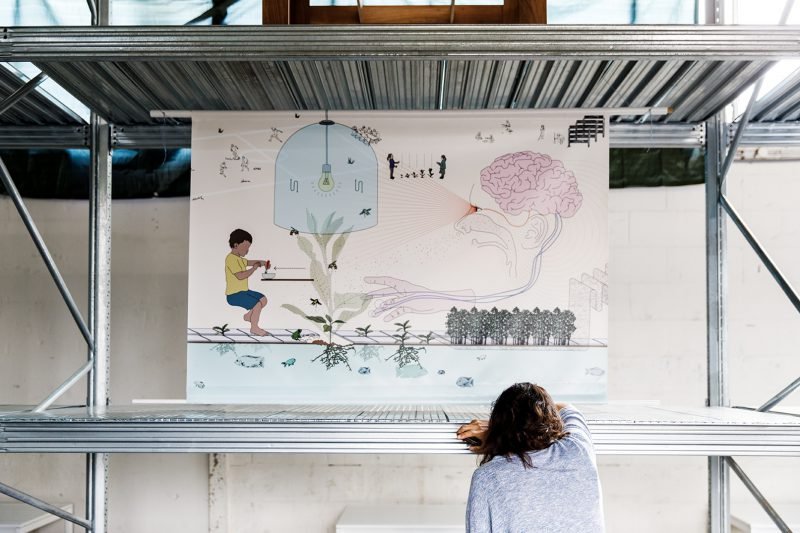The Next Economy: An Introduction To IABR—2016
On 23 April, the International Architecture Biennale Rotterdam kicks off in the Fenixloods II, a former warehouse in the regenerated neighbourhood Katendrecht. Led by an international curator team with chief curator Maarten Hajer, the 7th edition of the IABR will investigate the relationship between spatial design and the Next Economy — between space and production.
IABR imagines the urban future through the healthy and socially inclusive city, the productive city, and the sustainable green city, while exploring future scenarios for a city in which citizens can be producers rather than consumers. The team of curators states that spatial design contributes to the The Next Economy if it’s done in better and smarter ways.

An Energetic Odyssey 2050 (Horns Rev, Denmark) © Christian Steiness
In our IABR-themed article series in the coming months, we especially want to focus on the role of citizens, how individual participation and production contribute to a better city as a whole. Changing roles of authorities, alongside technological trends, ask for smart coordination of societal and spatial developments, wherein both the society as well as the individual takes part in facing ongoing urban challenges of the future city.

Hackable Cityplot (Amsterdam, The Netherlands) © Stadslab Buiksloterham Circulair
The IABR’s program includes a main exhibition in the Fenixloods II, integrated with additional lectures, conferences, workshops and debates. The exhibition showcases over 60 projects from around the globe, including partner projects, curator projects and a selection of best practices. This year, the curator projects will highlight rapid urbanization processes in Africa in ‘Africa: What’s Next?’, and the role of designers in mega cities of China.

iShack2 (Cape Town, South Africa) © Megan King
IABR also exhibits the results of a two-year research of five IABR ateliers, a collaboration program with governments, architects and urban planners in which through design the city of the future is explored. The ateliers conduct research about the Next Economy in Brussels, Rotterdam, Groningen, Utrecht and Albania.
Ateliers of Rotterdam and Brussels explore the productive city, investigating how Western cities set the stage for the manufacturing industry. Atelier of Utrecht focuses on the healthy city, exploring the challenges of health, healthcare, welfare and sustainable environments. Atelier Groningen highlights the new energy landscape, a study into the region of Groningen developing towards an economy based on renewable energy. And finally, Atelier Albania explores the transition to a sustainable economy, while activating local human capital and natural resources.

Living Necropolis (Manila, Philippines) © John Tubles & Sarkis Sarkisyan
In the coming weeks, we will highlight our selection of projects through a series of articles for the IABR—2016—THE NEXT ECONOMY, tackling issues of the future city: from rapid urbanization, informal settlements and social empowerment to technological and sustainable urban challenges.
The 7th edition of the International Architecture Biennale Rotterdam runs from April 23rd – July 10th 2016. The full program is now available on their website. The conclusions of IABR—2016—THE NEXT ECONOMY will be presented in a closing debate on Sunday 3rd of July.



